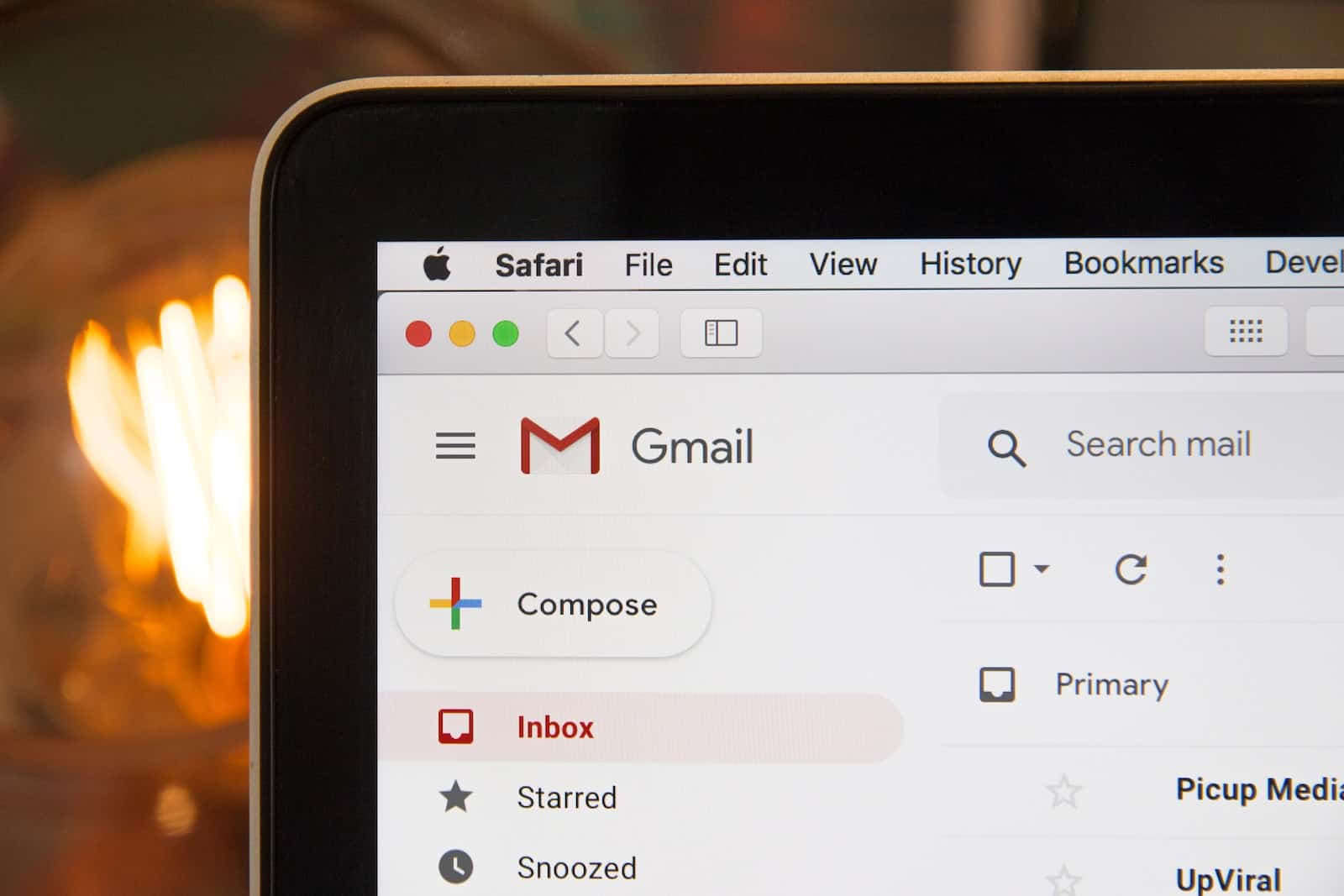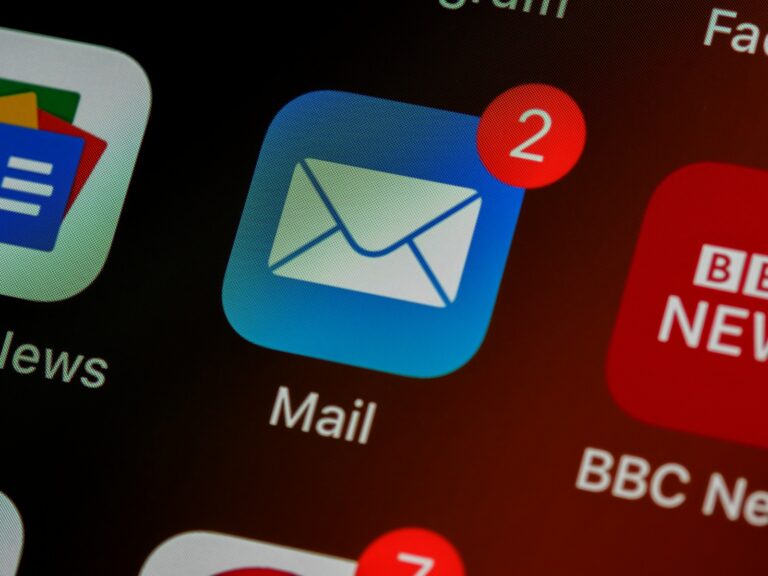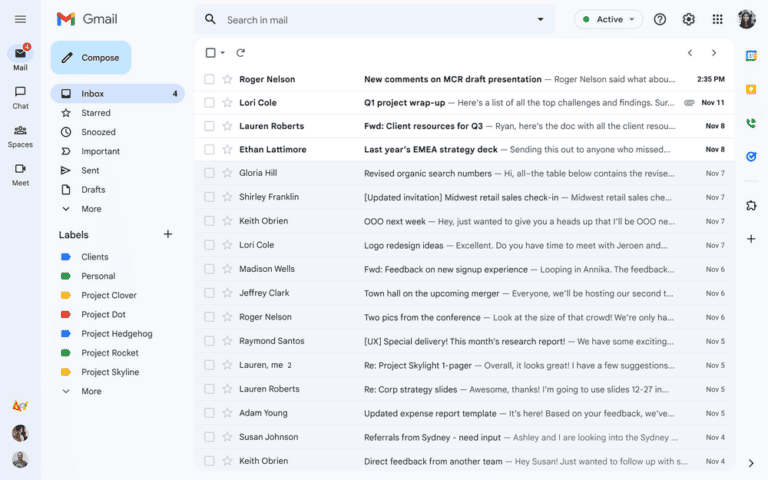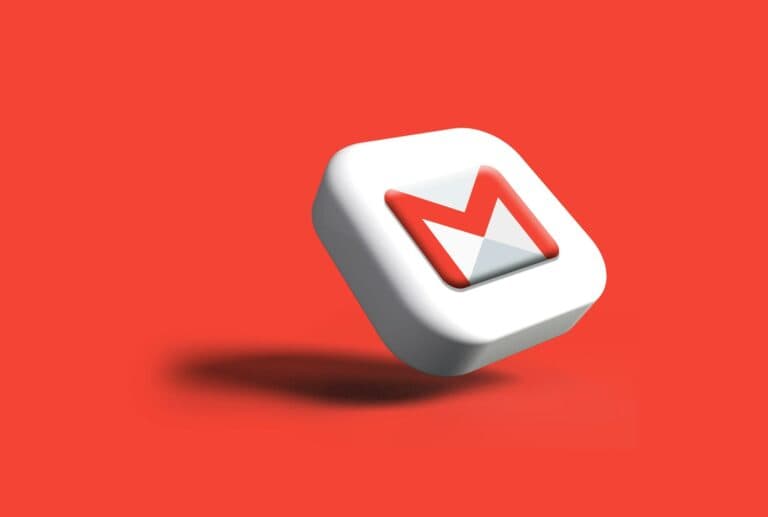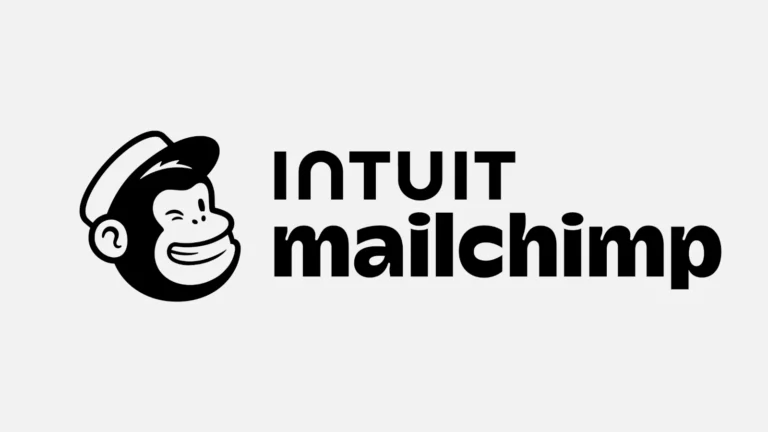Choosing the right email provider can make a big difference in your daily digital life. With dozens of free options available, most people stick with whatever they signed up for first. But different email services offer different features, storage limits, and privacy protections.
Gmail remains the top choice for most users because it offers 15 GB of free storage, excellent spam protection, and seamless integration with other Google services. However, other providers like Outlook, Yahoo Mail, and privacy-focused options like Proton Mail might better suit specific needs. Some people prioritize unlimited storage, while others want maximum security for sensitive communications.
The best email service depends on how someone plans to use it. Students might need different features than business professionals. People who send many photos need more storage than those who mainly send text messages. Understanding these differences helps users pick the right service from the start.
Email Service Breakdown
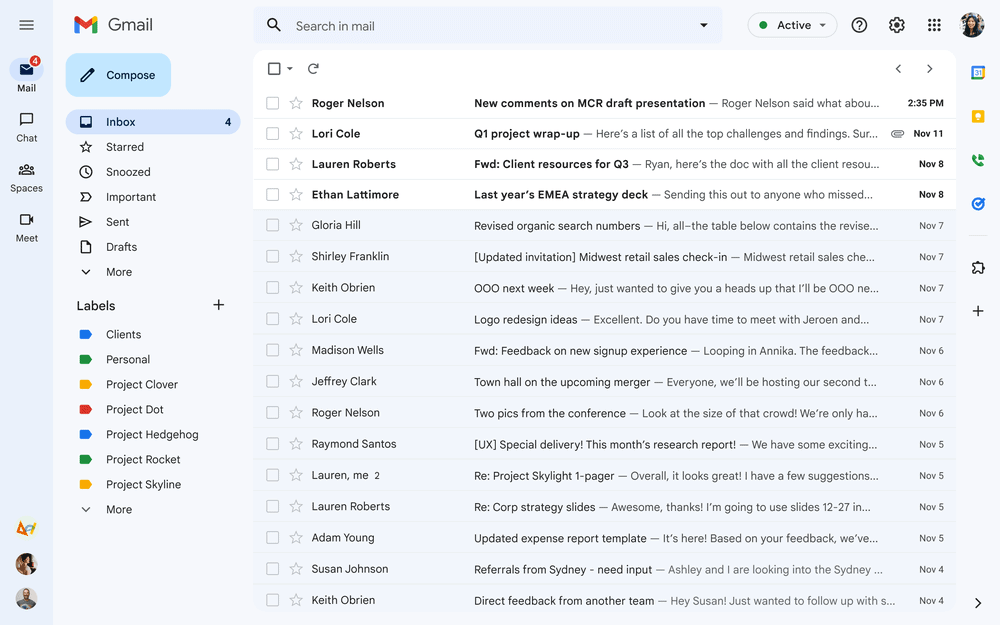
Choosing the right email service is crucial in today’s digital world, whether for personal communication, business use, or specialized needs. With numerous options available, this comprehensive guide will help you make an informed decision based on your specific requirements.
Overview of Email Services
The email landscape in 2025 offers diverse options, from tech giants’ free services to specialized privacy-focused providers and enterprise solutions. The best email provider of 2025 varies depending on individual needs, from storage and security to user interface and ecosystem integration.
Top Email Services Compared
Gmail
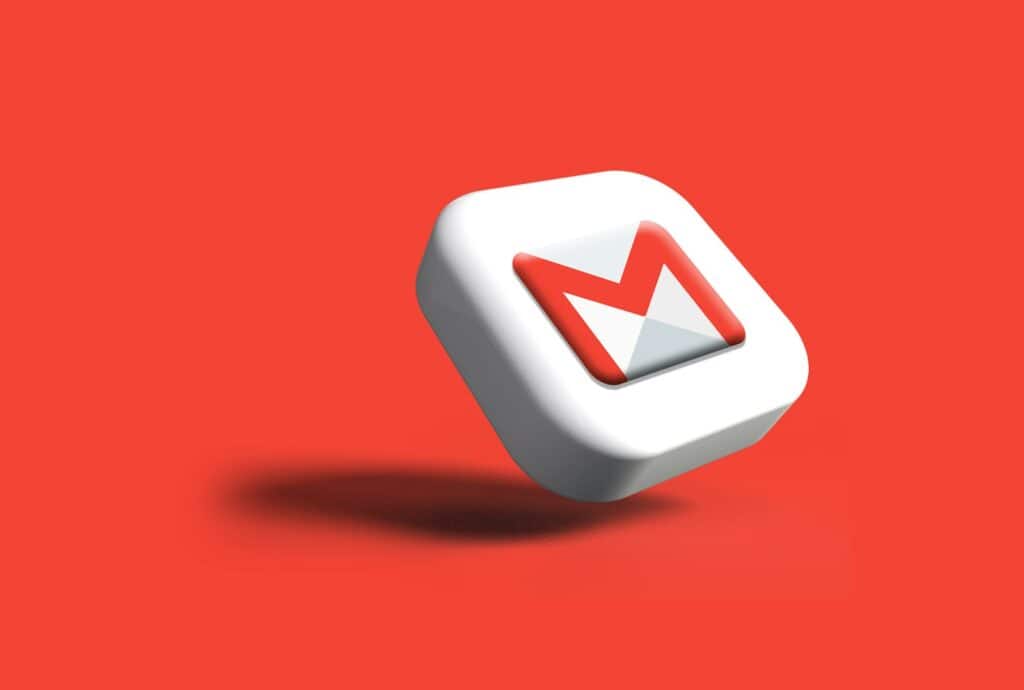
Strengths:
- 15GB free storage shared across Google services
- Excellent spam filtering and security features
- Seamless integration with Google Workspace
- Advanced search capabilities
- Mobile app excellence
- Strong AI-powered features
Best For:
- Users heavily invested in Google ecosystem
- Those needing robust search functionality
- Business users requiring Google Workspace integration
Considerations:
- Privacy concerns due to Google’s data collection
- Ads in free version
- Storage shared with other Google services
Outlook (Hotmail)
Strengths:
- 15GB free storage dedicated to email
- Excellent Microsoft Office integration
- Clean, professional interface
- Strong calendar integration
- Good mobile apps
- No ads in email content (sidebar ads only)
Best For:
- Microsoft ecosystem users
- Business professionals using Office 365
- Users preferring ad-free email experience
Considerations:
- Interface can feel cluttered to some users
- Limited customization options
- Some advanced features require paid subscription
Yahoo Mail
Strengths:
- 1TB (1000GB) free storage
- Long-established service with reliable uptime
- Good spam filtering
- Multiple account management
- Free disposable email addresses
Best For:
- Users needing massive storage
- Long-time Yahoo users
- Those wanting multiple email aliases
Considerations:
- Past security breaches
- Heavy advertising presence
- Interface feels dated compared to competitors
- Limited innovation in recent years
Apple iCloud Mail
Strengths:
- Seamless integration with Apple devices
- 5GB free storage (upgradeable)
- Clean, minimalist interface
- Strong privacy focus
- Excellent synchronization across Apple devices
Best For:
- Apple ecosystem users
- Privacy-conscious individuals
- Users wanting simple, clean interface
Considerations:
- Limited storage in free tier
- Poor experience on non-Apple devices
- Fewer features compared to competitors
- Requires Apple ID
ProtonMail
Strengths:
- End-to-end encryption by default
- Zero-access encryption
- Swiss privacy laws protection
- No ads or tracking
- Open-source transparency
Best For:
- Privacy and security-focused users
- Journalists and activists
- Users in privacy-sensitive professions
- Those avoiding big tech companies
Considerations:
- Limited free storage (1GB)
- Fewer integrations with third-party services
- Less convenient for everyday users
- Some features require paid plans
Tutanota
Strengths:
- End-to-end encryption
- German privacy laws protection
- Affordable premium plans
- Calendar integration with encryption
- Open-source client
Best For:
- Privacy-conscious users on a budget
- European users preferring EU-based services
- Those wanting encrypted calendar functionality
Considerations:
- Limited free storage (1GB)
- Smaller ecosystem of features
- Less mainstream support and integrations
Key Factors to Consider
Storage Needs
Storage capacity varies significantly between providers. Consider:
- Current email volume
- Attachment frequency and size
- Future growth needs
- Whether you prefer cloud-based or local storage
Security and Privacy
Security features to evaluate:
- Two-factor authentication support
- Encryption options (in transit and at rest)
- Privacy policies and data handling
- Compliance with regulations (GDPR, CCPA)
- History of security breaches
Integration and Ecosystem
Consider your existing digital ecosystem:
- Operating system preferences (iOS, Android, Windows, macOS)
- Productivity suite usage (Google Workspace, Microsoft 365)
- Calendar and contact management needs
- Third-party app integrations
User Interface and Experience
Interface considerations:
- Web client design and functionality
- Mobile app quality and features
- Customization options
- Ease of use for your technical level
- Accessibility features
Business vs. Personal Use
Personal Use Priorities:
- Cost-effectiveness
- Ease of use
- Integration with personal devices
- Social features
Business Use Priorities:
- Professional appearance
- Collaboration tools
- Administrative controls
- Compliance features
- Reliability and uptime
Specialized Email Needs
For Privacy Advocates
Beyond ProtonMail and Tutanota, consider:
- Secure communication requirements
- Anonymous registration options
- Tor browser compatibility
- Metadata protection
For Small Businesses
Key business email requirements:
- Custom domain support
- Professional appearance
- Team collaboration features
- Administrative controls
- Scalability options
For Students and Educators
Educational considerations:
- Integration with learning management systems
- Collaboration tools for group projects
- Large attachment support for assignments
- Cost-effective or free options
For International Users
Global usage considerations:
- Multi-language support
- Regional data storage options
- Compliance with local regulations
- Accessibility from various countries
Migration Considerations
Switching Email Providers
When changing services:
- Export existing emails and contacts
- Set up email forwarding from old account
- Update account information across services
- Inform contacts of new email address
- Consider running both accounts temporarily
Data Portability
Ensure your chosen provider offers:
- Easy export options
- Standard format support (MBOX, PST)
- Contact export capabilities
- Calendar data portability
Cost Analysis
Free vs. Paid Tiers
Free Tier Limitations:
- Storage restrictions
- Limited features
- Advertising presence
- Reduced customer support
Paid Tier Benefits:
- Increased storage
- Advanced features
- Ad-free experience
- Priority support
- Custom domain options
Long-term Cost Considerations
Factor in potential costs:
- Storage upgrade needs
- Premium feature requirements
- Business expansion
- Additional user accounts
Email Service Comparison Table
| User Type | Best Primary Choice | Alternative Options | Key Reasons |
|---|---|---|---|
| General Personal Use | Gmail | Outlook, Yahoo Mail | Best overall feature set, reliability, and ecosystem integration |
| Privacy-Conscious Users | ProtonMail | Tutanota, StartMail | End-to-end encryption, zero-access policies, strong privacy focus |
| Apple Ecosystem Users | iCloud Mail | Gmail (for features) | Seamless Apple device integration, clean interface |
| Microsoft Ecosystem Users | Outlook | Gmail (for features) | Perfect Office 365 integration, professional appearance |
| Small Business Owners | Google Workspace | Microsoft 365, Zoho Mail | Professional features, custom domains, collaboration tools |
| Large Enterprises | Microsoft 365 | Google Workspace | Advanced admin controls, compliance features, enterprise security |
| Students | Gmail | Outlook (if school uses Office) | Free Google Workspace features, excellent collaboration tools |
| Heavy Storage Users | Yahoo Mail | Gmail (with paid storage) | 1TB free storage, good for media-heavy communication |
| Budget-Conscious Users | Gmail | Yahoo Mail, Zoho Mail | Best free tier features, long-term value |
| International Travelers | Gmail | Outlook | Global accessibility, reliable international access |
| Creative Professionals | Gmail | Adobe Creative Cloud email | Integration with creative tools, large attachment support |
| Non-Profit Organizations | Google for Nonprofits | Microsoft 365 Nonprofit | Discounted or free business features for qualifying organizations |
| Technical/Developer Users | Gmail | ProtonMail, FastMail | API access, advanced filtering, integration capabilities |
| Seniors/Simple Needs | Yahoo Mail | AOL Mail | Simple interface, familiar experience, large text options |
| Security Professionals | ProtonMail | Tutanota, Hushmail | Military-grade encryption, security-first design |
Final Recommendations
For Most Users
Gmail remains the best overall choice for most users due to its combination of features, reliability, storage, and ecosystem integration. Its advanced spam filtering, search capabilities, and mobile experience are industry-leading.
For Privacy First
ProtonMail is the clear winner for users prioritizing privacy and security, offering genuine end-to-end encryption and a commitment to user privacy.
For Business Use
Microsoft 365 (Outlook) or Google Workspace (Gmail) depending on your existing productivity suite preferences and specific business needs.
For Specific Ecosystems
Choose the email service that best integrates with your existing digital ecosystem – iCloud for Apple users, Outlook for Microsoft users, and Gmail for Google users.
Conclusion
The best email service for you depends on your specific needs, privacy requirements, ecosystem preferences, and usage patterns. While Gmail offers the best overall experience for most users, privacy-conscious individuals should consider ProtonMail, and business users should evaluate Microsoft 365 or Google Workspace based on their existing productivity tools.
Consider starting with a free account to test the service before committing, especially for business use. Remember that you can always migrate to a different service later, though it’s easier to choose the right one from the beginning.
Take time to evaluate your current and future needs, test different interfaces, and consider the long-term implications of your choice. The right email service will serve as a reliable communication hub for years to come.
Key Takeaways
- Gmail offers the best overall combination of features, storage, and spam protection for most users
- Privacy-focused services like Proton Mail provide better security but often have storage limitations
- Different email providers excel in specific areas like unlimited storage, business integration, or temporary use cases
Frequently Asked Questions
People often struggle with choosing between different email providers and creating addresses that meet their needs. These questions cover security features, professional formatting, and business requirements to help users make informed decisions.
What type of email service is most suitable for personal use?
Gmail works well for most personal users. It offers 15 GB of free storage and connects easily with other Google services.
Yahoo Mail provides unlimited storage for free accounts. The interface is simple and good for basic email needs.
Apple’s iCloud Mail suits iPhone and Mac users best. It syncs across all Apple devices automatically.
Outlook.com works well for Windows users. It has strong spam filtering and calendar integration.
Which email providers offer the highest level of security for free accounts?
ProtonMail provides end-to-end encryption for free accounts. Only the sender and recipient can read the email contents.
Tutanota encrypts all emails automatically. It stores messages on secure servers in Germany.
Gmail uses security measures to prevent hacking. However, Google can still access your email data for advertising purposes.
Yahoo Mail has two-factor authentication available. This adds extra protection to your account login.
How should I choose a unique email ID that stands out?
Use your full name when possible. This makes you easy to find and remember.
Add numbers or periods if your name is taken. Try birth years or meaningful dates.
Avoid hard-to-spell words or random characters. People need to type your address correctly.
Keep it short and simple. Long addresses are harder to remember and type.
Skip unprofessional words or phrases. Your email address represents you online.
What are some examples of professional email address formats?
First name plus last name works best. Examples include john.smith@gmail.com or johnsmith@gmail.com.
First initial plus last name also works well. Try j.smith@gmail.com or jsmith@gmail.com.
Full names with underscores are acceptable. Use john_smith@gmail.com if periods don’t work.
Numbers can be professional if used wisely. Add graduation years like john.smith2020@gmail.com.
Avoid nicknames or personal interests. These don’t look professional in work settings.
Are there any email services considered superior to Gmail for specific needs?
ProtonMail beats Gmail for privacy protection. It encrypts all messages by default.
Outlook.com works better for Microsoft Office users. It connects directly with Word and Excel files.
Apple iCloud Mail syncs better with iPhones and iPads. All your devices stay updated automatically.
Yahoo Mail offers more free storage space. Users get unlimited storage compared to Gmail’s 15 GB limit.
Zoho Mail provides better business features. It includes calendar scheduling and team collaboration tools.
What should be considered when selecting an email provider for business purposes?
Storage space matters for business accounts. Companies need room for attachments and long email histories.
Security features protect business data. Look for two-factor authentication and encryption options.
Integration with other tools saves time. Check if the provider works with your calendar and document software.
Professional domain options help with branding. Some providers let you use your company website address.
Customer support quality affects daily operations. Choose providers that offer phone or chat help when problems occur.

